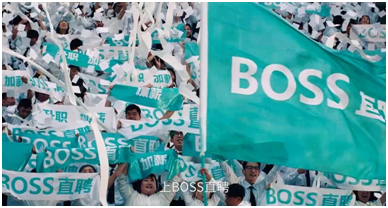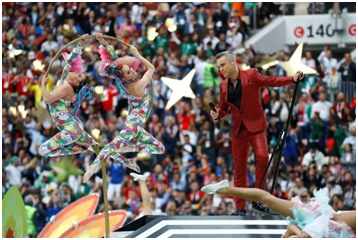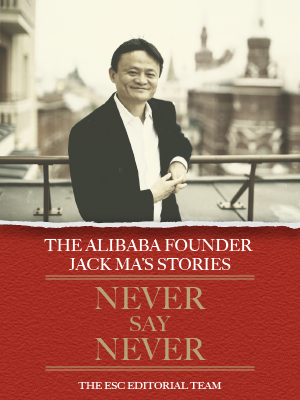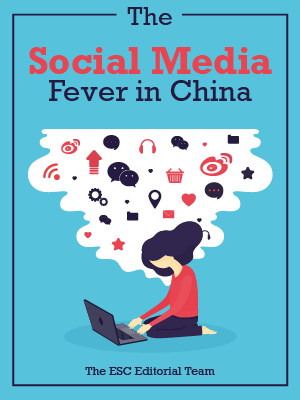Ecommercestrategychina.com uses cookies and other technologies to provide you a better browsing experience. You can get more information regarding the use of cookies, or decline it whenever by clicking Privacy Policy. By using this site or clicking “Okay”, you give us the consent to the use of cookies.
OKAY
During the 30 days of the World Cup, Chinese audiences were annoyed at the brainwashing advertising, which often repeated itself in each break between games.
"Promotion! Raise Salary! Find a job! Speak directly to the boss! Find a job, go to BOSS.com!" That was the slogan of BOSS during the World Cup. In this advertisement, which was teased angrily by the audience, job seekers disguised themselves as fans, wore a white shirt and a blacktie with green paint on the face and held the BOSS flags, with the slogan written on it. In addition, Mafengwo and Zhihu's repeated advertisements were also considered "brainwashing".
Such advertisements may be inspirational to advertisers but often they may not reflect or even violate the original brand character. For Internet companies, the most important goal seems to impress the audience, even if it annoys them. Therefore, placing brainwashing advertisements is, to some extent, an optimal choice.

The World Cup is a traffic pool for a period of time
The World Cup was without doubt the number one IP that can create national and global popularity. The data reflects the audience's enthusiasm for the World Cup.

According to a report on China's CCTV.com, more than 128 million mainland China poeple watched the opening ceremony, opening match and related programs on CCTV on June 14. Since CCTV had received the exclusive media rights in China for the 2018 World Cup, it was the main channel for the Chines audience to see tournament. We have learned that the commercials that promoted the CCTV broadcast of the World Cup this year offered only two programs: the top partners and the commercial breaks sponsors. The rights included sponsorship of the program title during the game, as well as time-limited commercial ads for 15 or 30 seconds. The advertising price for each brand was RMB 239 million, or RMB 165 million.
Zhihu, BOSS and other Internet brands had been given the rights to commercial breaks. The sum was about RMB 100 million or more. That was a lot of money for startups. Although Internet companies often advertise in subways and lifts to attract offline traffic, companies are now considering TV commercials, which are seen by more than 100 million daily users.
Over the past two years, the mobile Internet traffic dividend in China has gradually declined, and Internet companies are exploring new ways to reach customers. The offline potential consumer base will be a new channel for some Internet companies to expand their business, such as the online travel companies Ctrip and Qunar, which have already established offline businesses to reach customers. In contrast, traditional TV commercial advertising is expensive and makes it difficult for the company to monitor its performance. However, for those brands that want to expand their impact on third and fourth-tier cities, traditional TV commercial advertising is still a good choice rather than the high investment costs for offline exploration.
One of the reasons why Zhihu, BOSS and other relatively "smaller" brands had decided to increase the investment cost for the TV commercials was because the audience of the World Cup was their target audience. According to the Cool Goose Institute report, 76.4% of the audience at the World Cup was male, and the age groups focused mainly on those born in the 1990s and 1980s, 40% of whom had a bachelor's degree. At other times these users are less prone to surreptitious advertising and it is harder to target them. The World Cup tournament is like a booster that brings users together in front of the TV and gives the brands a great opportunity to show themselves.
Despite some negative comments from the audience, the advertising performance data shows that brainwashing advertising played a good game. According to the Baidu Index, the search trends of Zhihu, Mafengwo and BOSS have increased since June. Mafengwo's advertising on TV media has an obvious and good effect on the APP installation and active users.
Zhihu also emphasised that the creative advertising ideas had no intention of "getting attention negatively or through controversial advertising", and did not intentionally stage themselves. "This advertisement expresses the essence of Zhihu. The slogan is logical and mirrors the self-reflection and insight behind it."
"Brainwashing" advertisements may have encountered the resentments of some users, but these seem worth it as they face the evolving needs of companies. The problem is that if there are only one or two such advertisements like China's Naobaijin, the brainwashing campaign can be regarded as a "classic case" in the advertising circle. If many companies joined forces to do the same advertising during the World Cup, it would be a 32-day audiovisual disaster for the audience.
Make sure your brainwashing publicity is not risky
With the advent of social media on the Internet, especially on the mobile Internet, the limits of brainwashing campaigns are gradually shrinking. This two-sidedness becomes more and more evident under the reinforcing effect of the network.
Taking the above three companies as an example, although brand awareness has increased, they have lost their reputation in the second spread online. Many people said that they have since added the three APPs to their blacklist. Boss.com even carried a "pyramid schemes" infamy.
Which is more important for popularity and brand goodwill? In the age of word of mouth in social media, this answer is self-evident. In addition to the risk, brainwashing requires a lot of money. Thus, the common brands have difficulty making a brainwashing advertisement. A smarter way is to take advantage of hot events to create a theme around the World Cup and trigger a second spread, which is what we call content marketing.
For example, Vatti's poster "If the French team wins the World Cup, you will receive the full refund of the purchase price" not only highlights its status as a sponsor of the French national team, but also transforms the brand into an ordinary fan who gives the brand a personality. The promise of "full refund" is like a virus that gives this poster the characteristics of a social currency. It causes many spreads and extensive emulations of other brands.
In short, whether it is a brainwashing advertisement or a follow-up to hot events, the key to success is social thinking and the creation of social currency.
Please Login to add comments.

$9.99 $19.98

$9.99 $19.98